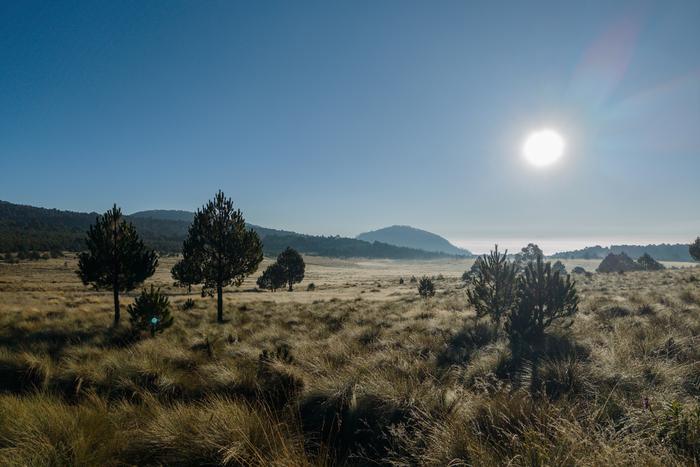As climate change redistributes terrestrial ecosystems across the globe, the world’s natural capital is expected to decrease, causing a 9% loss of ecosystem services by 2100. That’s according to a study of natural capital published today in the journal Nature led by scientists at the University of California, Davis, and Scripps Institution of Oceanography at UC San Diego.

Credit: Armando Vega, CC 4.0
As climate change redistributes terrestrial ecosystems across the globe, the world’s natural capital is expected to decrease, causing a 9% loss of ecosystem services by 2100. That’s according to a study of natural capital published today in the journal Nature led by scientists at the University of California, Davis, and Scripps Institution of Oceanography at UC San Diego.
Breathable air, clean water, healthy forests and biodiversity all contribute to people’s well-being in ways that can be very difficult to quantify. “Natural capital” is the concept scientists, economists and policymakers use to represent the current and future flow of benefits the world’s natural resources bring to people.
“The big question is what do we lose when we lose an ecosystem?” said lead author Bernardo Bastien-Olvera, a doctoral student at UC Davis when the study was conducted and currently a postdoctoral fellow at Scripps. “Flipping the question: What do we gain if we are able to limit climate change and avoid some of its impacts on natural systems? This study helps us better consider damages not usually accounted for. It also reveals an overlooked, yet startling dimension of climate change effects on natural systems — its capacity to exacerbate global economic inequality.”
Profound inequalities
When countries lose natural capital, their economies suffer. The study found that, by 2100, climate change-induced changes to vegetation, rainfall patterns and higher CO2 result in an average 1.3% reduction in gross domestic product, or GDP, across all the countries analyzed. It further found profound inequalities in the distribution of these impacts.
“Our research found that the world’s poorest 50% of countries and regions are expected to bear a staggering 90% of the GDP damages,” Bastien-Olvera said. “In sharp contrast, the losses for the wealthiest 10% might be limited to just 2%.”
The authors said this is largely because lower-income countries tend to rely more on natural resources for their economic production, and a larger fraction of their wealth is in the form of natural capital.
Natural and economic values
For the study, the authors used global vegetation models, climate models and World Bank estimates of natural capital values to estimate the consequences of climate shifts on countries’ ecosystem services, economic production and natural capital stocks.
These estimates may be conservative, as the analysis considered only land-based systems — primarily forests and grasslands. Bastien-Olvera plans to address marine ecosystem impacts in future research. The study also didn’t account for disturbances like wildfires or insect-driven tree mortality.
Accounting for nature
The overall findings underscore the importance of creating climate policies that account for the particular values each country derives from its natural systems.
“With this study, we’re embedding natural systems and human well-being within an economic framework,” said senior author Frances C. Moore, an associate professor in the UC Davis Department of Environmental Science and Policy. “Our economy and well-being depend on these systems, and we should recognize and account for these overlooked damages when we consider the cost of a changing climate.”
The study was funded by the National Science Foundation.
“Thanks to the efforts of this research team, we now know that damage to ecosystems impacts human well-being in ways that are both measurable and wildly disproportionate across populations,” said Jeffrey Mantz, NSF program officer. “The results will be critical to abating economic losses in the coming decades.”
Journal
Nature
DOI
10.1038/s41586-023-06769-z
Method of Research
Meta-analysis
Article Title
Unequal climate impacts on global values of natural capital
Article Publication Date
18-Dec-2023




